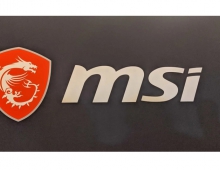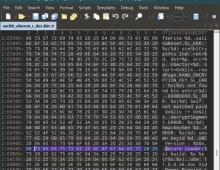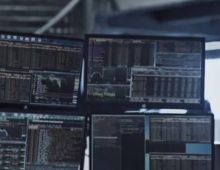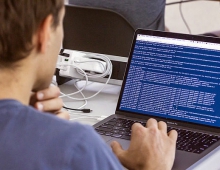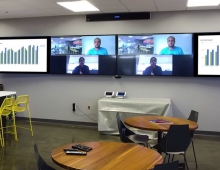
China Defends U.S. Hacking Accusations
The China's Defence Ministry said on Wednesday that the accusations by a U.S. computer security company that a Chinese military unit is likely behind a series of hacking attacks are "groundless both in facts and legal basis."
The statement came after a security company, Mandiant, identified the China's 2nd Bureau of the People's Liberation Army (PLA) General Staff Department's (GSD) 3rd Department (Military Unit Cover Designator 61398) as the most likely driving force behind the latest hackings. In a report, Mandiant designates the Chinese military group as one of the largest "Advanced Persistent Threat" (APT) groups. In a report, Mandiant claims that APT has systematically stolen confidential data from at least 141 organizations across multiple industries.
"APT1 is among dozens of threat groups Mandiant tracks around the world, and one of more than twenty attributed to China that are engaged in computer intrusion activities," said Kevin Mandia, Mandiant?s chief executive officer. "Given the sheer amount of data this particular group has stolen, we decided it was necessary to arm and prepare as many organizations as possible to prevent additional losses."
Responding to Mandiant's accusations, China's military spokesman said on Wednesday that the country's armed forces had never backed any hacking activities.
"China's laws ban any activities disrupting cyber security and Chinese government always cracks down on cyber crimes," Geng Yansheng, spokesman with Ministry of National Defense, said at a briefing. He added that Mandiant's report was groundless in fact because the report came into the conclusion that the source of attack came from China only with the discovery that attacks were linked to IP addresses based in China.
"It is a common method on the Internet to conduct hacking attacks by peculating IP addresses," the spokesman said, adding that the report "lacks of legal basis to assert cyber espionage only by collecting some routine cyber activities."
But concerns have been rising in the United States as prominent companies and media outlets report cyberattacks. Apple on Tuesday was the latest to report a hacking attempt, although it said no data was stolen.
The New York Times said hackers stole its corporate passwords and accessed the personal computers of some of its employees after the newspaper published a report on the family fortune of China's Premier Wen Jiabao.
"APT1 is among dozens of threat groups Mandiant tracks around the world, and one of more than twenty attributed to China that are engaged in computer intrusion activities," said Kevin Mandia, Mandiant?s chief executive officer. "Given the sheer amount of data this particular group has stolen, we decided it was necessary to arm and prepare as many organizations as possible to prevent additional losses."
Responding to Mandiant's accusations, China's military spokesman said on Wednesday that the country's armed forces had never backed any hacking activities.
"China's laws ban any activities disrupting cyber security and Chinese government always cracks down on cyber crimes," Geng Yansheng, spokesman with Ministry of National Defense, said at a briefing. He added that Mandiant's report was groundless in fact because the report came into the conclusion that the source of attack came from China only with the discovery that attacks were linked to IP addresses based in China.
"It is a common method on the Internet to conduct hacking attacks by peculating IP addresses," the spokesman said, adding that the report "lacks of legal basis to assert cyber espionage only by collecting some routine cyber activities."
But concerns have been rising in the United States as prominent companies and media outlets report cyberattacks. Apple on Tuesday was the latest to report a hacking attempt, although it said no data was stolen.
The New York Times said hackers stole its corporate passwords and accessed the personal computers of some of its employees after the newspaper published a report on the family fortune of China's Premier Wen Jiabao.

